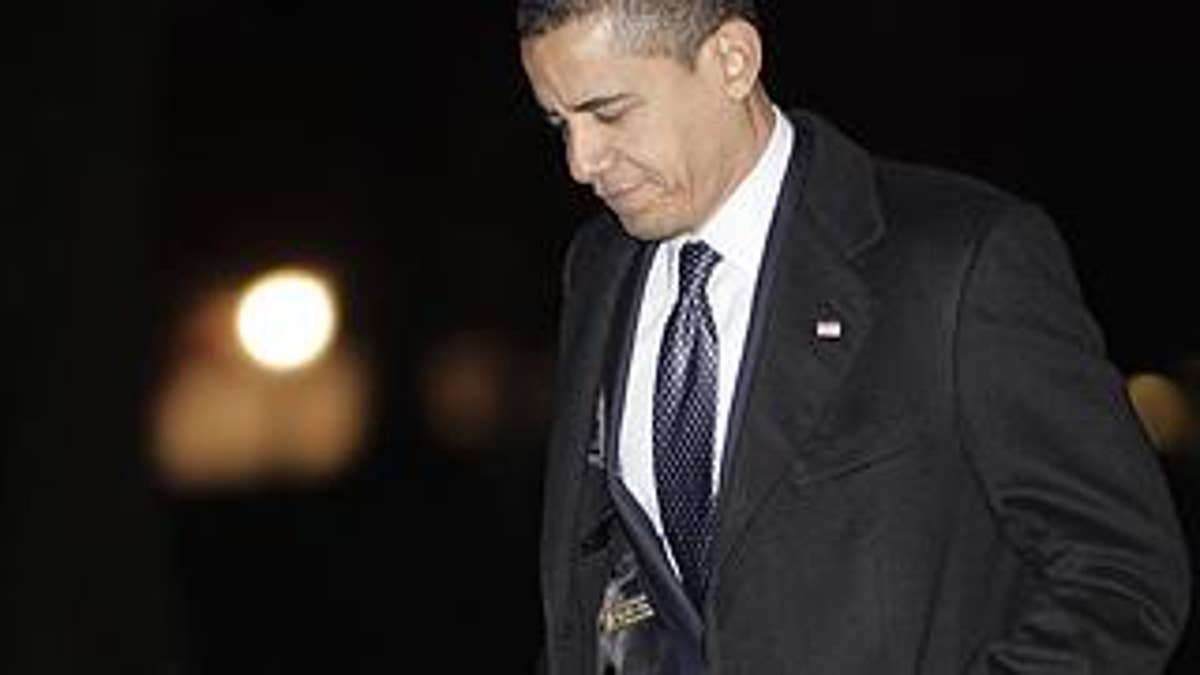
President Obama's assertion to homeowners that refinancing their mortgage loans now with interest rates at a near-record low equates to a tax cut isn't that cut and dried, according to tax analysts.
Obama said at his third press conference last month that the housing plan his administration has launched has "already contributed to a spike in the number of homeowners who are refinancing their mortgages, which is the equivalent of another tax cut."
But tax analysts told FOXNews.com that lower mortgage rates actually reduces tax savings.
"While there could be overall savings by refinancing and lower monthly payments, there also could be reduced tax benefits as less interest is paid," said Gil Charney, an analyst for The Tax Institute at H&R Block.
"Also refinancing could extend the period before the mortgage is fully paid off, so this might not be desirable for someone who wants to be mortgage-free," he said.
Mark Steber, vice president of tax resources at Jackson Hewitt Tax Service said, "While generally there is no tax advantage to refinancing at a lower rate, an individual can save on the total out of pocket costs each year over the life of the loan.
"Though a tax bill will actually increase after refinancing, the increase in taxes may be less than half of the total difference in interest paid, so the taxpayer may save more money than their taxes increase, therefore resulting in net savings."
Obama urged families to refinance at a photo-op in early April.
"We are at a time where people can really take advantage of this," Obama said, seated with a handful of homeowners who claimed to have already lowered their bills.
But Obama failed to mention that unlike the housing boom that led to the current financial crisis, only borrowers with strong credit and stable jobs are able to save money if they refinance.
The average rate on a 30-year fixed-rate mortgage fell to 4.78 percent this month, before inching back up.
"The main message we want to send today is there are 7 to 9 million people across the country who right now could be taking advantage of lower mortgage rates," Obama said at the photo-op. "That is money in their pocket."
But Charney says that if a homeowner expects to move within a few years, the closings costs may exceed any savings.
"Therefore, someone about to make a financial decision should take their complete financial picture into account, not just their tax situation," Charney said.
Charney offered two scenarios where refinancing could produce tax savings and lower monthly payments.
In the first scenario, a homeowner in the 25 percent tax bracket with a $100,000 mortgage at 6 percent interest decides to refinance after reducing the loan to $75,000 to take advantage of a 4.8 percent interest rate.
The new rate would reduce the interest expense in the first year to $3,600, a tax savings of $800.
That savings, however, is reduced by $200 to $600 because of the lower interest rate.
But if the homeowner does not refinance the $75,000 mortgage, the interest expense in that first year will amount to $4,400, a tax savings of $1,100.
In the second scenario, a homeowner in the 15 percent tax bracket with a $140,000 mortgage at 5.5 percent interest chooses to refinance after paying the loan down to $100,000 to lock in a 4.8 percent interest rate.
The interest in the first year would total $4,800, a tax savings of $600, which is reduced by $95 to $505 because of the lower deduction.
But if the homeowner does not refinance, the interest expense totals $5,400 for a tax savings of $810.
Steber also provided a scenario that showed homeowners will save more in taxes by not refinancing but will pay more in mortgage interest.
In the first scenario, a homeowner making $60,000 per year with a $150,000 mortgage at 6.5 percent rate will pay $191,317 in interest over the life of a 30-year loan. But if the mortgage is refinanced two years in at a 5 percent rate, the homeowner will pay $159,173 in interest over the remainder of the loan, saving $32,144.




